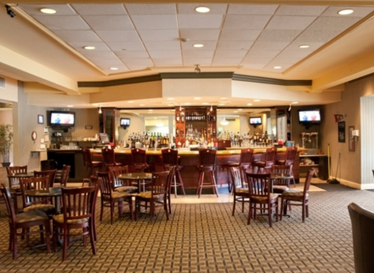 I’ve written before about the basics of peer-to-peer—also called crowdfunding—real estate marketplaces.
I’ve written before about the basics of peer-to-peer—also called crowdfunding—real estate marketplaces.
When it comes to debt investments, many of the first few companies in this space focused on lending to active “flippers” who were renovating single-family homes.
This is still a great business, and there are lots of reasons why there are plenty of opportunities left for flippers.
Real estate crowdfunding for apartments and commercial
The better crowdfunding marketplaces, though, also provide opportunities for investing in commercial properties—assets much larger than single-family homes.
For residential properties, this generally refers to apartment buildings with at least five units, although they’re often much bigger than that. Then there are all the other classes of commercial real estate—retail centers, office buildings, hotels, senior centers, student housing, self-storage facilities, medical office buildings and more.
These are all the sorts of properties that historically were difficult for most investors—even “accredited” ones—to participate in, since both equity and debt syndications on this scale usually required $100,000 to $200,000 commitments. With peer-to-peer or crowdfunding real estate marketplaces, accredited investors can participate in commercial real estate projects in a passive way—that is, without having to deal with all the management downsides like tenants, toilets and trash.
Let’s look at an example of one of my own recent commercial real estate investments through a peer-to-peer
company—in a mid-market hotel in the metropolitan Chicago area.
Here, I participated in a debt investment (i.e., where I’m acting as the “bank”) that helped an experienced hotel investor renovate and reposition a property.
This was a hotel originally constructed in 1970 with two other buildings added eight and 14 years later. It was a

Interior of hotel Lawrence Fassler invested in using real estate crowdfunding or peer-to-peer lending.
former Holiday Inn that had 220 rooms and a board room, meeting room, grand ballroom, restaurant, lounge, outdoor pool, fitness room with dry sauna and a 600-square-foot atrium.
The property is serviced by three elevators and 398 parking spaces.
The borrower was the successful bidder at auction for the property and had worked with hotels before. Indeed, he already owned and operated two other hotels near the Chicago O’Hare Airport—a Days Inn and a La Quinta.
The total borrowing by the purchaser of the property, who already had experience operating other hotels, was close to $4 million. Of this amount, the borrower planned to invest $700,000 for property improvements and then to re-brand the property under the “flag” of another major hotel chain with whom the borrower had experience. The hotel needed help, but it was not at all dilapidated. It was still generating operating income, but not at the level that it should have.
The loan relating to my investment was meant to be a “bridge” loan to the borrower. The loan was more expensive to the borrower than a conventional bank loan would have been, but the lender here was able to act quickly—which was important, since the borrower was involved in an auction, where typically the full purchase price needs to be paid promptly.
The loan amount was only about 55 percent of the then-current appraisal value, which gave me a level of comfort that the borrower really had found a good deal and just needed some time to get the property in a bit better shape and to align with a major chain.
The borrower has generally been making timely payments for the last year-and-a-half or so, and recently he began negotiations with another lender to refinance the property. A refinancing term sheet was obtained, but the new lender has liquidity requirements that the borrower is trying to meet by slightly delaying payments on the loan to which my own investment is related (this just occurred recently with last month’s expected interest payment).
If that refinancing all works out, then the loan to which my own investment relates is expected to be fully paid off. If the property has been appropriately repositioned and re-valued, then hopefully the borrower will be able to realize more profitable operations from the hotel going forward. We’ll see!
Lawrence Fassler is the General Counsel of Realty Mogul, an online marketplace for real estate investing, and a registered representative of WealthForge, LLC, member FINRA / SIPC, through which Realty Mogul offers equity securities.
IMPORTANT: The projections or other information regarding the likelihood of various investment outcomes are hypothetical in nature, do not reflect actual investment results and are not guarantees of future results. The experience of the author may not be representative of the experience of all clients, and is not a guarantee of future performance or success. Hyperlinks to sites outside of this domain do not constitute an approval or endorsement of content on the visited.
[hs_form id=”4″]























0 Comments